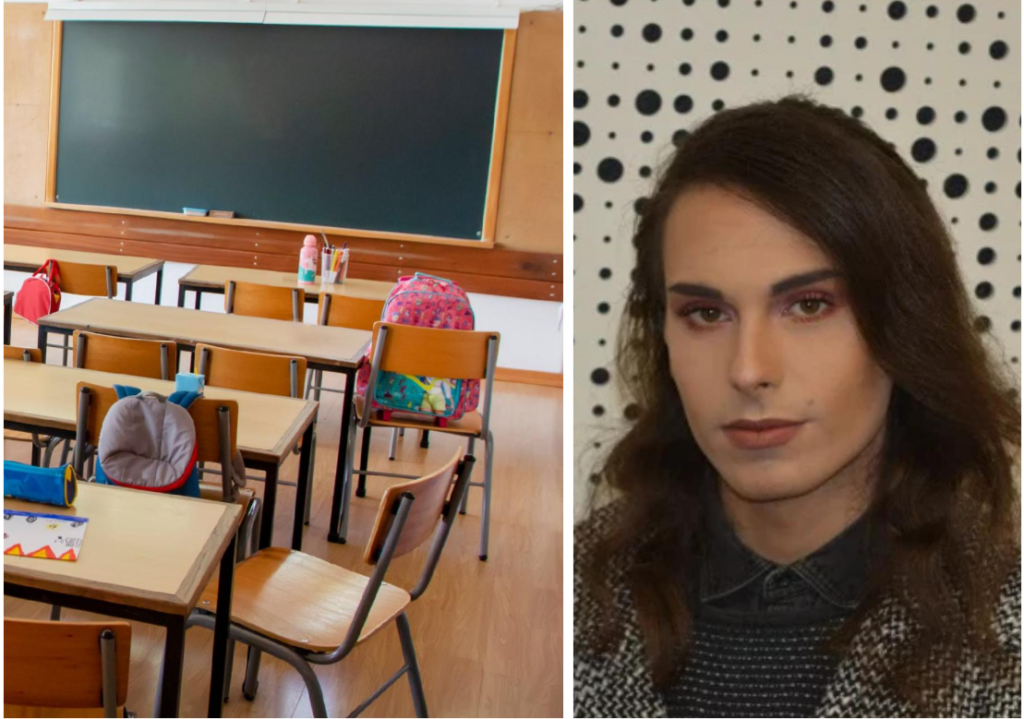A shock for the pupils, a shock for the parents of the pupils. A transgender teacher, Lucienne-Beatrice Krstova, is doing an internship at a school in Maribor.
Many outraged parents have turned against a transgender teacher who teaches at one of Maribor’s primary schools. One of them wrote: “He walks around the school with a moustache and beard, so that his appearance causes ‘excitement and disgust’.” However, the transgender teacher Lucienne-Beatrice Krstova has responded: “In a way, I understand why some parents are outraged, I am one of the first openly transgender primary school teachers. Children of parents who swear by traditional values will be introduced to difference!” Twenty-three-year-old Lucienne-Beatrice Krstova was born in Skopje and moved with her family to Maribor when she was still in primary school.
Is this appropriate for children who are just growing up and probably wondering who this teacher represents, is she a man or a woman? The faculty offered Krstova the option (they cannot fire or prevent her from practising) to discontinue her practice, but she decided to continue. She says that the students received her well and were mostly curious. But is this the right education for both boys and girls? For the pupils of a Maribor primary school?
This caused quite a stir on social media, and the left-wing weekly Mladina decided to defend her: “A student on internship was attacked just because she is a transgender person,” they wrote. They wrote that the first disagreements appeared on the Facebook page of the Parents’ Council of Slovenia, where parents expressed their dissatisfaction and indignation and where there were also calls for parents to write to the school management. The prospective teacher plans to file a police report in connection with the incident. But despite this, she remains firm in her belief that she will become a teacher, Mladina reports. “I also decided to become a teacher because I want to protect children who are one of the minorities, i.e. children who are particularly vulnerable and who, because of their difference, face difficulties of one kind or another. I want to be there for them, also because I didn’t have that when I was that age.”
Sara Kovač/E- Maribor


